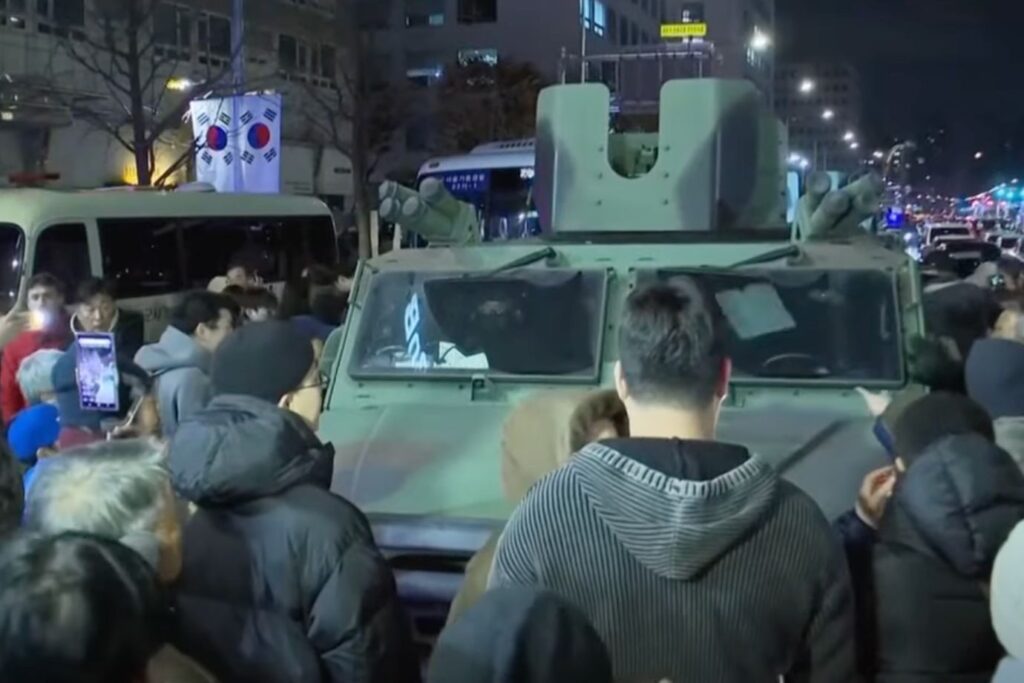A South Korean politician has described her extraordinary experience breaking through police barricades to enter parliament and vote to overturn the President’s martial law declaration.
Overnight, South Korean President Yoon Suk Yeol enacted martial law in the country, accusing the opposition of “anti-state activities”. Martial law – the suspension of ordinary laws which grants decision-making and law enforcement power to the military – has not been declared in South Korea since the 1980s.
Hours later, the President, who belongs to the conservative, right-wing People Power Party, rescinded the call. However, protests in South Korea remain ongoing, with many outraged over Yoon’s decision and calling for his resignation.
According to reports from Reuters, members of President Yoon’s staff, including his chief-of-staff and senior secretaries, have suggested they will resign en masse as a result.
Following the President’s declaration of martial law in a live televised address, police and military personnel surrounded the grounds of the National Assembly building, blocking anyone, including members of the National Assembly, from entering the parliament building.
Remarkably, 190 of the 300 members of parliament broke through barricades to enter the building and vote for the President to reverse the decision, which ultimately, he did.
Jung Su Yeon is a politician from the opposition, representing the centrist-liberal political party, the Democratic Party of Korea. She spoke to The Telegraph and recounted her experience breaking through the barricade.
“The MPs and their secretaries all jumped the walls to get inside, but there were still police [there] and a fight broke out,” Jung Su Yeon said.
“I managed to crawl between the legs of a policeman.”
Jung Su Yeon said there were paratroopers attempting to break into the building, and she, alongside her parliamentary peers, “fought back by spraying fire extinguishers”.
“They were fully armed, so we were worried that there might be bloodshed,” she said.
“There were some injured people in the process, some with broken glasses and some people fell to the ground.”
Many have speculated Yoon’s enactment of martial law is related to his struggle to hold on to power in South Korea. Since taking office in May 2022, he has made 22 complaints in relation to impeachment motions filed against officials in his administration.
Recently, Yoon and his wife have also been involved in a political scandal: there are accusations he and first lady Kim Keon Hee abused their power in the selection of a byelection candidate for the People Power Party in 2022.
Meanwhile, there are hundreds of people protesting and calling for President Yoon to be impeached over the martial law declaration. In order for the President to be impeached, there must be a two-thirds majority vote in the National Assembly.
Australia’s Department of Foreign Affairs and Trade (DFAT) said they are “closely monitoring the evolving situation in South Korea following the imposition of martial law on 3 December and subsequent parliamentary debate”.
In a social media post on X, DFAT’s SmartTraveller warned travellers: “Sites like Gwanghwamun Square and Yeouido in Seoul may have larger crowds and more protest activity than usual. Avoid protests and demonstrations.”


